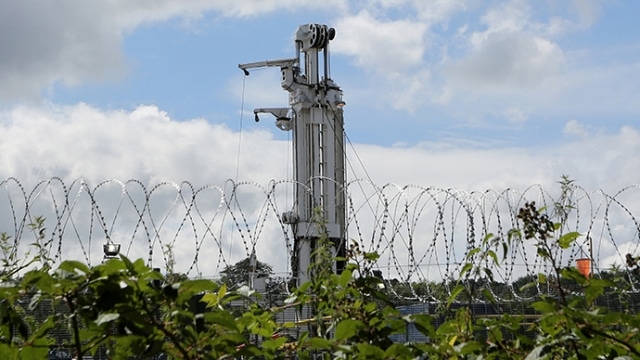Local small businesses seem to be throwing their weight behind the anti-fracking movement rather than the pro-fracking business lobby in Lancashire, finds Ben Lucas, MA Investigative Journalist student at City University.
There are currently more businesses in Lancashire that oppose rather than support fracking, according to available data.
The industry-funded North West Energy Task Force lists 349 businesses that support fracking in the area. But as Greenpeace revealed this week, only 149 businesses, or less than half listed (43 percent), are actually from Lancashire.
The North West Energy Task Force is a pro-fracking lobby group set up and largely financed by energy companies Cuadrilla and Centrica.
Notable supporters from outside the county include Derbyshire firm PR Marriot Drilling Group and a Liverpool-based events company, both of which have had contracts with Cuadrilla in the past.
Local Businesses
However, at the end of January this year, more than 200 businesses from Lancashire signed a letter asking the County Council to reject fracking.
Upon inspection, the letter, drafted by Frack Free Lancashire, shows that there are currently 203 businesses that reject fracking in Lancashire – over 50 more than those in favour of onshore shale oil and gas. This is excluding the signatures of many residents’ associations and the three trade union councils of North East Lancashire, Preston and South Ribble, and Blackburn.
The majority of businesses rejecting fracking are from Preston (30), Poulton-le-Fylde (22), Colne (21) and Accrington (20). Companies that signed the letter include cafés, salons, media organisations, design companies and estate agents.
This analysis, however, is not a surprise for local residents. Bob Dennett, co-founder of Frack Free Lancashire, said: “We’ve known that the majority of people who have signed up to the North West Energy Task Force are not from the area.”
Forefront of Fracking
Lancashire is currently at the forefront of Britain’s prospective shale industry.
In January, Lancashire County Council accepted Cuadrilla’s plea to defer its decision regarding permission for two fracking licences in the county.
The council looked likely to reject their bid after a report by the council concluded that fracking should not go ahead at the Little Plumpton and Roseacre Wood sites.
Dennett has described the process as a “big political game”. He said, “[Cuadrilla] did not want the county council to reject it so what they are doing is they are playing a little bit of politics trying to get it a deferral on their terms.”
A final decision is likely to be made around the end of April, as a minimum period of eight weeks is required before the council can reconvene to consider the applications.
While Cuadrilla maintains that fracking will go forward, Dennett insists it won’t: “It started in Lancashire. It’s going to stop in Lancashire.”
Photo: News Scoop Analyser via Creative Commons
Subscribe to our newsletter
Stay up to date with DeSmog news and alerts







